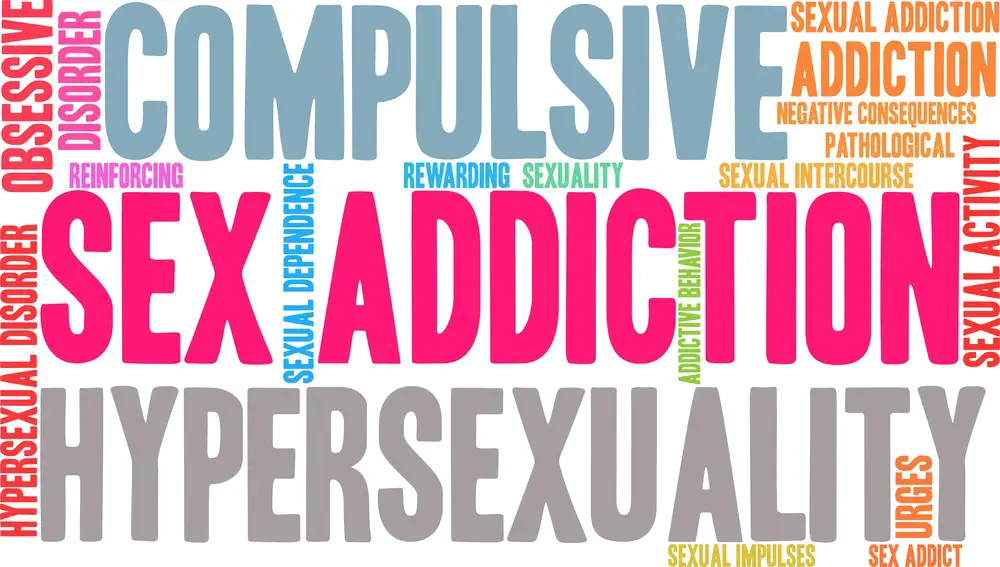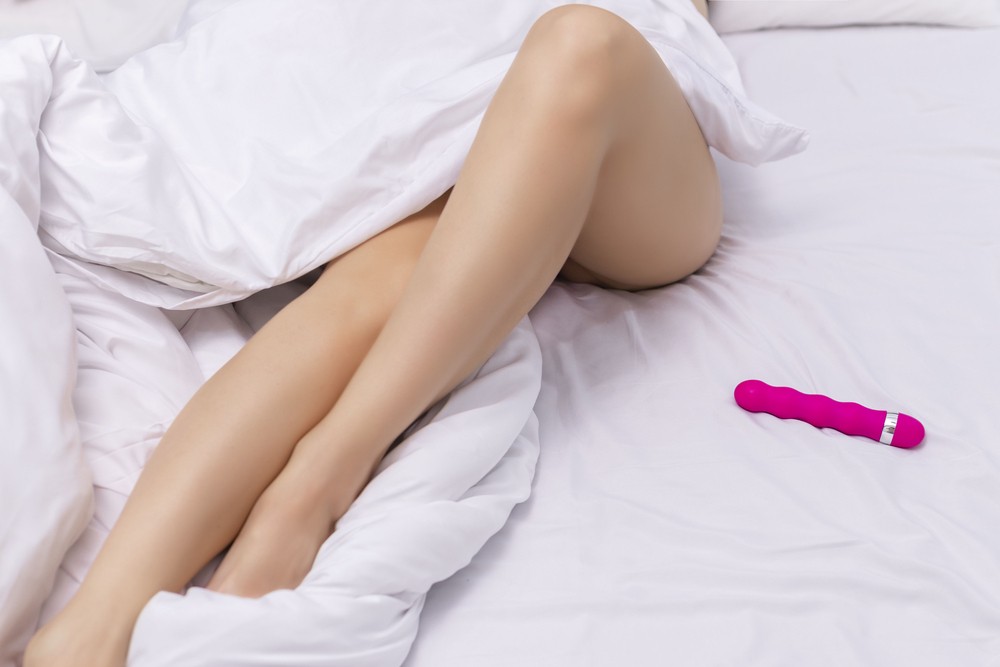As a BetterHelp affiliate, we receive compensation from BetterHelp if you purchase products or services through the links provided
Masturbation is a natural and common activity for many individuals, often regarded as a healthy aspect of sexual expression. However, questions about the potential links between masturbation and anxiety have been raised, causing concern for people who engage in this practice. In this article, we will discuss the possible connections between masturbation and anxiety, delving into the psychological and physiological aspects and addressing any myths and misconceptions related to the subject.
Understanding masturbation and mental health is crucial to recognize the factors that could contribute to feelings of anxiety. While some studies suggest that moderate masturbation may benefit mental health and stress relief, excessive indulgence could lead to negative consequences. In addition, societal and cultural beliefs surrounding masturbation can contribute to feelings of guilt or anxiousness, which is why exploring the connection between these factors is necessary.
Key Takeaways
- Masturbation is a common activity that can positively and negatively affect mental health.
- Cultural beliefs, myths, and individual experiences can influence anxiety surrounding masturbation.
- Recognizing the potential impact of excessive masturbation helps seek therapeutic approaches to address guilt and anxiety.
 Understanding Masturbation and Mental Health
Understanding Masturbation and Mental Health
Masturbation is a normal and healthy sexual activity that involves self-pleasure. It has various mental health benefits due to releasing hormones and neurotransmitters.
During masturbation, the brain releases dopamine, oxytocin, and endorphins responsible for feelings of pleasure, relaxation, and improved mood. These chemicals also help to reduce anxiety, stress, and even pain. Releasing prolactin after orgasm can promote relaxation, improved libido, and sexual satisfaction.
By providing a safe and private space for sexual exploration, masturbation allows individuals to discover their sexual preferences and better understand their bodies. Engaging in mindful self-pleasure can enhance one’s emotional and mental well-being, promoting self-awareness and self-acceptance.
Masturbation can also have a positive impact on mood and emotions. Regular sexual activity, including masturbation, can improve overall mental health and decrease the risk of depression and other mood disorders. This is partly due to the release of feel-good hormones that can help regulate emotions and contribute to well-being.
It is important to maintain a balanced approach to masturbation, as excessive indulgence can have negative effects on mental health, such as increased anxiety or feelings of guilt. However, when practiced in moderation, masturbation can contribute to a healthy sexual lifestyle, promote emotional well-being, and improve mental health.
 Masturbation and Anxiety: Exploring the Connection
Masturbation and Anxiety: Exploring the Connection
Masturbation, a common and natural activity, can be a way for people to relax and relieve sexual tension. In some cases, it may provide temporary relief from stress and anxiety. However, the relationship between masturbation and anxiety is complex and can vary among individuals.
For some, masturbation may lead to guilt or shame, potentially contributing to anxiety. These emotions could arise from cultural, religious, or personal beliefs surrounding sexuality. Our article, Why Do I Feel Guilty After Masturbation: Unraveling the Psychological Factors provides insights into the psychological factors that can cause feelings of guilt or shame after engaging in self-pleasure. It also offers tips for overcoming these feelings.
Excessive masturbation, on the other hand, might lead to heightened anxiety, particularly in individuals already struggling with mental health issues. Engaging in excessive self-pleasure could indicate an underlying imbalance or mental illness that requires professional attention. It’s essential to recognize when seeking help from a mental health professional or using medication might be necessary to address anxiety and related issues.
Maintaining a healthy balance between self-pleasuring and other aspects of life is crucial. Masturbation can be a valuable tool for learning about one’s body, arousal, and emotions, contributing positively to self-esteem. It is essential to acknowledge masturbation as a healthy and normal human experience.
In conclusion, the connection between masturbation and anxiety is multifaceted. While self-pleasuring can sometimes temporarily relieve stress and anxiety, feelings of guilt or shame and excessive masturbation can contribute to heightened anxiety. It is crucial to recognize when professional help or medication may be needed and maintain a healthy balance between self-pleasuring and other aspects of life.
 Myths and Misconceptions about Masturbation
Myths and Misconceptions about Masturbation
Masturbation is a common and natural practice among individuals of different ages and genders. However, many myths and misconceptions surrounding this topic need to be addressed.
Myth 1: Masturbation is a sin. This belief stems from various religious and cultural ideologies that often associate guilt and shame with the act. In reality, there is no scientific basis linking masturbation to any immoral actions. Many mental health professionals consider it a healthy and natural expression of sexuality.
Myth 2: Frequent masturbation can cause hairy palms. This is a completely unfounded myth. No scientific evidence or physiological correlation exists between masturbation and hair growth on one’s palms.
Myth 3: Masturbation leads to infertility. There is no credible evidence that supports this claim. Occasional ejaculation can help maintain healthy sperm quality and quantity. Anxiety related to this fear may create stress, lowering overall sexual health.
Myth 4: Excessive masturbation has numerous side effects, such as fatigue, headache, and dizziness. While it is true that sexual activities can cause these symptoms in some individuals, they are usually temporary. In most cases, masturbation has no long-lasting negative effects on physical health.
In summary, although masturbation is often perceived negatively due to various myths and misconceptions, it is important to recognize that it is a natural and healthy expression of sexuality for most individuals. Dispelling these misconceptions can help reduce unnecessary anxiety and guilt associated with the act.

Excessive Masturbation and Its Impact
Masturbation is a normal and healthy activity that many individuals engage in for various reasons, such as sexual pleasure or stress relief. However, excessive masturbation can have some negative side effects, particularly when it interferes with daily life and other aspects of a person’s well-being.
One possible consequence of excessive masturbation is sleep disturbance. Engaging in this activity too frequently or at inappropriate times may lead to tiredness, insomnia, or difficulty falling asleep. These sleep issues can, in turn, decrease overall mental health and increase anxiety levels.
Moreover, excessive masturbation might lead to addiction. Just like with any other compulsive behavior, some individuals may find it difficult to control their urges, leading to an increased reliance on masturbation as a coping mechanism or for stress relief. This masturbation addiction can also contribute to sexual dysfunction, such as difficulty maintaining erections, delayed ejaculation, or even pain during sex.
Regarding physical side effects, excessive masturbation can cause discomfort and chafing of the genital area. Over time, this can lead to more significant issues, such as pain or injury during sex or even ejaculation, further exacerbating anxiety and distress.
Finally, there is a potential risk of developing compulsive sexual behavior due to excessive masturbation. This condition, sometimes referred to as sexual addiction, can have a significant impact on an individual’s personal and professional life, leading to embarrassment, guilt, and increased anxiety levels.
While moderate and occasional masturbation is considered healthy and normal, individuals must be aware of the potential risks and negative consequences of excessively engaging in the activity. By maintaining a balance and understanding personal limits, one can continue to enjoy the benefits of masturbation without experiencing the negative impacts mentioned above.
Masturbation: A Gendered Perspective
Masturbation is a natural and healthy aspect of human sexuality, practiced by both men and women. It is important to approach the topic from a gendered perspective since varying experiences and social influences affect each gender differently.
For men, masturbation is often seen as a normal way of exploring their bodies and sexual desires. Many health experts agree that regular masturbation can help maintain optimal sexual health for men by promoting regular ejaculation, improving blood flow, and reducing stress. However, excessive masturbation can lead to anxiety, primarily due to societal beliefs or unfounded concerns about performance and sexual sensitivity.
On the other hand, women’s experiences may differ due to societal norms and gender biases. Some studies suggest that women who masturbate are more likely to have a positive body image, a stronger sense of sexual autonomy, and increased sexual desire. Yet, societal expectations and taboos can cause some women to feel guilt or shame about masturbation, which may lead to anxiety.
In relationships, open communication about masturbation and sexual health is essential. For both genders, understanding and accepting each other’s sexual needs can help reduce anxieties associated with masturbation. This can improve sexual satisfaction and a growing understanding of desires and boundaries.
Masturbation is beneficial for maintaining a healthy balance between sexual sensitivity and desire in both men and women. However, it is important to consider the unique challenges each gender faces in terms of societal pressures and misconceptions. By addressing these issues, individuals can achieve a healthy, anxiety-free relationship with masturbation.
Therapeutic Approaches to Feelings of Anxiety and Guilt
Therapeutic approaches can be highly effective for individuals struggling with anxiety and guilt related to masturbation. A professional therapist can guide them through various techniques to address and alleviate these emotions.
Individuals may benefit from talk therapy, where they can openly discuss their guilt and anxiety. This can help identify the root of these emotions and create a safe space for processing them. Additionally, a therapist can offer positive reinforcement and support to normalize a person’s relationship with masturbation and reduce the sense of taboo.
Cognitive behavioral therapy (CBT) is another widely used strategy for combating anxiety and guilt in these scenarios. CBT analyzes and challenges negative thought patterns, replacing them with more rational and positive ones. By identifying the specific thoughts and beliefs leading to anxiety and guilt, individuals may uncover ways to reframe their perspective.
Mindfulness and meditation practices can also play a vital role in managing anxiety and guilt. These techniques promote relaxation, self-awareness, and acceptance. When individuals focus on their breath, thoughts, and sensations, they can better understand the factors that contribute to their emotions and learn to respond more rationally.
Through the combination of talk therapy, cognitive behavioral therapy, and mindfulness practices, individuals can work towards mitigating feelings of anxiety and guilt associated with masturbation and ultimately build a healthier relationship with their sexual self.

Conclusion: Opening Up About Masturbation
Masturbation is a natural and common activity that many individuals engage in throughout their lives. It has various benefits, including stress relief and improved sexual health. However, concerns about its potential relationship with anxiety may arise.
For some individuals, masturbation can trigger anxiety, likely due to societal stigmas and personal guilt. Conversely, others may find it an outlet for stress relief and relaxation. Communication and openness about masturbation within relationships can help dissipate guilt and anxiety. Encouraging healthy discussions about intimacy can improve both partners’ mental and emotional well-being.
Seeking treatment and guidance from a professional healthcare provider can offer additional support for individuals and couples experiencing anxiety related to masturbation or sexual intercourse. Adolescents, in particular, may benefit from education and guidance from healthcare providers to develop a healthy understanding of their sexual health and behaviors.
In conclusion, addressing the subject of masturbation openly and seeking advice from healthcare providers is essential to ensure one’s well-being and maintain a healthy relationship with oneself and their partner.
Frequently Asked Questions
Is there a link between masturbation and anxiety?
The relationship between masturbation and anxiety is not entirely clear-cut. Research has yet to establish a definitive link between the two; however, individual experiences may vary. Some people feel less anxious after masturbating, while others may experience increased anxiety. It is essential to consider one’s factors and reflect on the emotions and feelings experienced during and after masturbation.
Can excessive masturbation lead to anxiety disorders?
Excessive masturbation, like any other compulsive behavior, can potentially exacerbate pre-existing anxiety or contribute to developing anxiety disorders. This may occur if negative emotions such as guilt, shame, or embarrassment become associated with masturbation, impairing mental health and leading to irrational thoughts or fears. Moderation and understanding one’s boundaries are crucial.
How does masturbation affect mental health?
Masturbation, especially in moderation, can have positive mental health effects such as stress relief and mood improvement. However, excessive masturbation may lead to negative impacts on mental health, such as feelings of guilt or shame. Individual reactions to masturbation vary and depend on cultural, personal, and psychological factors.
Is there a connection between sexual activity and anxiety levels?
There is some evidence that sexual activity, including masturbation, can help reduce feelings of anxiety. Engaging in sexual activity can release endorphins and other “feel good” hormones, which can have a calming and anxiety-relieving effect. However, this can vary from person to person, and the relationship between sexual activity and anxiety levels is complex and multifaceted.
How can masturbation influence stress levels?
Masturbation can help reduce stress levels by temporarily releasing physical tension and triggering the release of endorphins, which can improve mood and relaxation. Oxytocin, the “love hormone,” is another hormone released during sexual activity that can reduce stress. It is important to remember that these effects may vary from person to person and are not universally experienced.
What are the psychological effects of frequent masturbation?
The psychological effects of frequent masturbation depend on individual factors and attitudes. For some, it may relieve stress and be a healthy part of self-care. Others may experience negative emotions, such as guilt, shame, or embarrassment. These factors can be influenced by cultural, religious, and personal beliefs, as well as one’s relationship with their body and sexuality. In extreme cases, compulsive masturbation might lead to isolation or difficulty forming lasting relationships.
- 3 Ways Wearing a Hat Can Help Lower Your Stress Levels - April 19, 2025
- Breaking the Silence: Why Men’s Mental Health Matters More Than Ever - April 15, 2025
- How to Transform a Home’s Patio Space into a Relaxing Space - March 23, 2025
This site contains affiliate links to products. We will receive a commission for purchases made through these links.


 Understanding Masturbation and Mental Health
Understanding Masturbation and Mental Health Masturbation and Anxiety: Exploring the Connection
Masturbation and Anxiety: Exploring the Connection Myths and Misconceptions about Masturbation
Myths and Misconceptions about Masturbation
